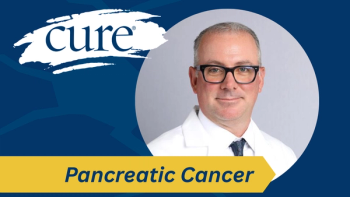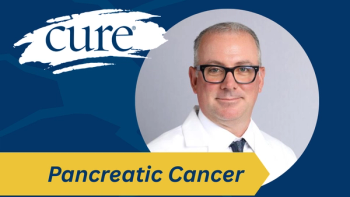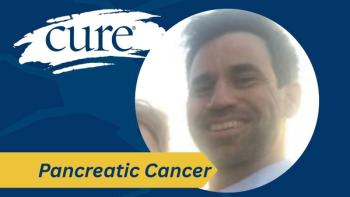
- GI Special Issue
- Volume 1
- Issue 1
Embracing Multitasking: Combining Treatments for Pancreatic Cancer
An expert sheds light on emerging combination treatments for pancreatic cancer.
With
Ideal surgical candidates are those with localized disease situated away from vital structures like veins and arteries, explained Choti, who is division chief of surgery at Banner MD Anderson Cancer Center in Gilbert, Arizona. However, as more advanced imaging techniques enter the field, more patients with borderline operability are being identified and recommended for surgery. As a result, Choti said, multimodality therapy will play a larger role. For example, rather than receiving chemotherapy post-operatively, these patients can receive it before surgery to help shrink the tumor before it is removed, which may also address microscopic disease beyond the pancreas.
Combination therapy can also be helpful for patients with advanced disease, who are not eligible for surgery.
Although
In the study, patients are receiving BL-8040 alone for five days, followed by cycles of Keytruda combined with BL-8040 every three weeks. At the European Society for Medical Oncology 2019 Congress, researchers presented data for 29 patients they were able to evaluate. The results showed a median overall survival of 3.4 months for the entire group of patients, and 7.5 months for those who had received at least one previous line of treatment.
In an interview with OncLive®, a sister publication of CURE®, Choti highlighted these and other emerging developments in the field of pancreatic cancer.
OncLive®: What is the role of surgery in the pancreatic cancer paradigm? Has it shifted in recent years?
Choti : Many changes are happening in the treatment of patients with pancreatic cancer. The most common form, pancreatic adenocarcinoma, is still a very difficult disease and very life-threatening; few of these patients can be cured. For most surgical oncologists, the goal is to determine if we can cure the disease through surgery. Unfortunately, most patients who present with pancreatic adenocarcinoma are not operable at the time of diagnosis. These patients can either have metastatic disease or locally advanced disease (involving lymph nodes or adjacent tissue), precluding the ability to resect (operate on) it.
Therefore, imaging is very important, and so is early diagnosis. If the tumor is resectable — that is, contained, with no evidence of metastatic disease and away from the vital structures — that patient is a candidate for surgical therapy. Of course, these are big operations depending on where the tumor is located: in the head of the pancreas, the tail or the body.
What is new in the landscape of patients with operable disease is the multimodality therapy. We are seeing more effective forms of systemic chemotherapy for patients with pancreatic cancer. We are aggressively bringing in the regimens that were being used for patients with advanced disease. Rather than giving chemotherapy post-operatively, we are seeing a strong trend toward neoadjuvant (pre-surgical) chemotherapy. This is mostly for patients with what we call borderline operability. More often than not, we are recommending systemic chemotherapy prior to surgery.
Would you describe the biggest advances being made in the field?
We are learning more about the area of hereditary or familial high-risk pancreatic cancer, and it is now recom­mended that all patients with pancre­atic cancer undergo genetic counseling and testing for inherited mutations in cancer predisposition genes. There is a lot of ongoing research trying to (find ways to) screen patients at high risk for the disease. Clearly, early diagnosis and prevention are very important, but we are learning that there is a lot of room for improvement in our ability to detect pancreatic cancer.
We are learning more about certain familial mutations — for instance, the BRCA gene mutation. These mutations are associated with breast and ovarian cancers, but we are learning that these also might have something to do with risk of pancreatic cancer. We are developing regimens to screen those patients, but there is still a challenge in how we are doing the screening. There is still room for addi­tional research.
There is also the topic of how we can use molecular testing of the tumor in order to identify or personalize the forms of therapy we use. Can we bring immunotherapy or targeted agents into pancreatic cancer? Unfortunately, most of the molecular information we are getting is not very (useful in making treatment decisions). The standard treatments are still cytotoxic chemotherapies.
Additionally, there is a debate in the field on whether we should use radiation for patients with locally advanced disease. Pancreatic cancer that involves the arteries and veins is not initially operable, but perhaps there are other ways to manage these patients. For these patients, the standard, again, is chemotherapy.
Does immunotherapy have a role in this space?
Right now, there are ongoing trials in immunotherapy for advanced pancreatic cancer. Currently, it appears that most pancreatic cancers are not immunogenic, so they are not good candidates for this type of treatment. In the current trials, we do not have any recommended effective immunotherapy agents, but there is potential for it in the very small population of patients with microsatellite instability-high tumors. (These tumors have trouble repairing their own DNA when damaged and tend to respond well to certain immu­notherapies.) Also, combinations with other drugs that can “co-stimulate” the immune system might make this approach work better.
Do you have any advice for community oncologists who are treating patients with pancreatic cancer?
Pancreatic cancer is a very aggressive disease that needs multidisciplinary management if at all possible. Clearly, for patients that present with advanced metastatic disease, the role of radiation or surgical therapy is more limited. Usually, for those patients, a community oncologist may suggest newer combination chemotherapy regimens. Our goal is to not only prolong survival but also manage quality of life. What is important in that sense is for oncologists to accurately stage these cancers.
If the disease is resectable, that patient needs to be managed in a high-volume center with an experienced team. There is curative potential. Sometimes patients with borderline operable or even operable disease are not referred to receive surgery. We need to make sure that we are identifying the right patients.
Articles in this issue
almost 7 years ago
Anticipating Treatment's Side Effects Can Help Alleviate Themalmost 7 years ago
After Surgery, Lonsurf Remains Helpful in Gastric Canceralmost 7 years ago
Looking Beneath the Surface in Colorectal Canceralmost 7 years ago
Targeted Therapy Response Can Predict Survival in HCC, Findings Suggestalmost 7 years ago
BRAF V600E-Mutated Cholangiocarcinoma Responds to Drug Combo



